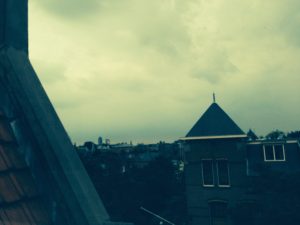Some people are spendthrifts, while others are bargain hunters. I think most of us fall in-between the two poles, making spending decisions that employ our individual, and often peculiar, personal math. The same person may pay a premium for a convenient quart of milk on the way home in order to have time to bargain hunt for an hour to save five dollars on an Internet purchase. The math involved here is the value of time—both the time spent on in front of the computer and the time spent traveling from place-to-place in a car or on foot. The extra money spent—or saved—is more symbolic than real.
We all do it.
We try to get our money’s worth one way or another and our machinations reveal a great deal about what we value and who we are. Characters in fiction do the same thing. At an “all-you-can-eat-buffet” does a character try to break the bank? This sets him up for a long night awake with indigestion, and the opportunity to witness a crime from his window.
How does this character feel about hotel prices? Will he sacrifice location for a discounted room? This might put him in a strange part of a city. His story will unfold in this unfamiliar turf, because of this money choice. His intention might be to spend the money saved on the hotel room on expensive dinners or an antique clock. But maybe he’s just the kind of person counting pennies on his vacation because it is his habit in life?
He might also opt for the least expensive room in a great hotel? Having spent more than a few nights in the tiniest room of an expensive hotel with a perfect location, I know that my math was weighted heavily in favor of the location (on Museumplein in Amsterdam) and the hotel’s professional staff & amenities. A character based on me, would forego legroom in favor of a five-minute walk to the Rijksmuseum. This character might even meet a mysterious spy at the hotel’s small bar—although I met business people and a few tourists.
Characters reveal themselves in their various routes toward getting their money’s worth. It demonstrates their values and the lengths they will go to achieve even the pettiest ends. Sounds like real life and reality in fiction!







I just realised something! You plot the way I do, from small, character driven events that snowball into something big…just like in real life. But do you plan them out first or do you allow your subconscious to supply them and weave the plot around them afterwards?
Btw – what you said about the buffet and indigestion? It’s so wonderful I hope it’s not just an example but actually in the book somewhere. 😀
Yes, I tend to work from the micro to the macro and follow the unexpected consequences of a choice or an action. But do I plan or or allow my subconscious to do the planning? The latter is my inclination, but I’m trying to be more systematic. My subconscious is a very big player in my writing. The other day I wrote a couple of paragraphs—just the start of a story with no idea where it would go. Yesterday, I was in the sauna at the gym and BANG… the idea came. I got home, wrote the story and realized that my writer brain and been pondering while I went about worrying about other things. LOL
The line about the indigestion came to me while I was writing the blog post and I think it will be the nexus of a story. It feels like the Agatha Christie where an older lady witnesses a murder on a train passing on another track. When you look out a window at night, you never know what you will see!